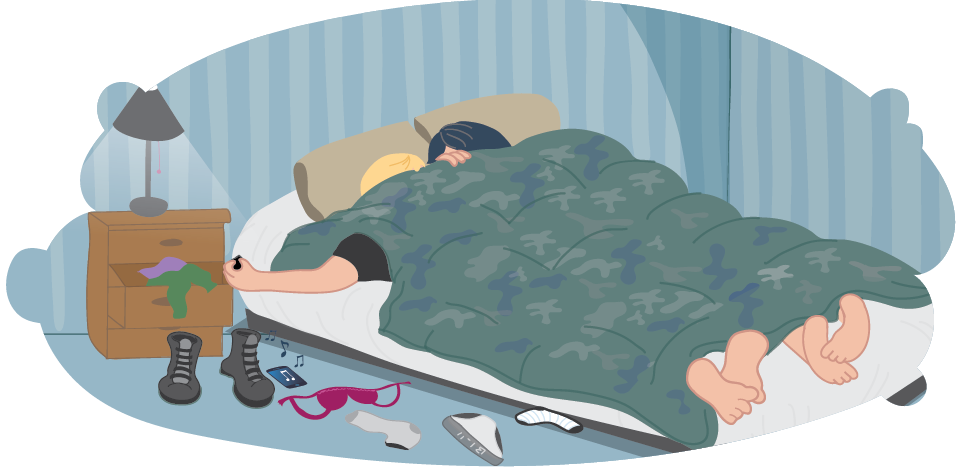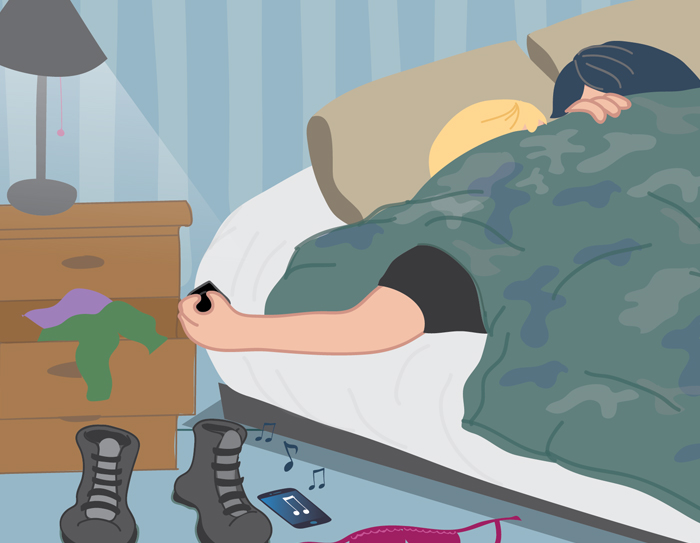Why you need to know about safe sex
Sex can be enjoyable and fun, but it does carry some serious risks. It’s important to protect yourself by knowing about safe sex.

What does 'safe sex' actually mean?
It means caring for your own health and your partner's health
It’s about protecting yourself and your sexual partner from STIs.
It means avoiding unplanned pregnancy.
It’s about making sex safer and respectful.
It means looking after your emotional and physical health.
It’s about making sure you’re both ready and prepared.
It’s knowing about laws, consent, and the risks of unsafe sex.
The risks of unsafe sex
Engaging in safe sex helps you to avoid risks like:
"I went to the doctor and I was like so anxious, like so nervous. I was like, 'Damn, my like first STI'. Like, they tell you not to get one... And then my GP told me that that I definitely had chlamydia."
–Alex Trkulja, Sex and Relationship Therapist
Sexually Transmitted Infections (STIs)
STIs are infections or diseases that can be passed on from one person to another during unprotected sex with an infected partner. This includes vaginal, anal or oral sex. Some STIs can be passed on by just skin-to-skin contact like touching or kissing. Types of STIs include:
HIV & AIDS
Chlamydia
Genital herpes (HSV)
Genital warts (HPV)
Trichomoniasis
Hepatitis C
Scabies
Gonorrhoea
Hepatitis A & B
Syphilis
Pubic lice
Thrush
How to protect yourself against STIs
A big part of protecting yourself is having safe sex
Safe sex is having sexual contact while protecting yourself and your sexual partner against STIs.
You can reduce your risk by using dental dams or condoms with a water-based lubricant, every time you have sex.
When used correctly condoms offer the best available protection against STIs.
Remember - even when used correctly they don’t guarantee 100% protection against STIs.
STIs often have no symptoms so you may not know if you or a partner has an STI. If you’re worried about STIs you can ask your doctor or local Family Planning clinic for a sexual health check-up.
How to protect yourself against unplanned pregnancy
You can reduce your risk by using contraception
Contraception is also known as birth control.
It’s essential any and every time you have sex if you want to avoid pregnancy.
There are lots of different types of contraception, including male and female condoms, pills, diaphragms, implants, IUDs and injections.
It’s important to note that only condoms offer protection from both unplanned pregnancy and some STIs.
Remember - even when contraception is used correctly they don’t guarantee 100% protection against unplanned pregnancy.
What is "unsafe sex"?
Every time you have unsafe sex you’re at risk of STIs and pregnancy. You could be at risk if you:
Haven’t used any form of contraception
Had sex and the condom broke or came off
Have had vaginal, anal or oral sex without using a condom
Had skin-to-skin contact with someone who has an STI
Missed or forgot your regular contraceptive pill before having sex
Had issues with your contraception (diaphragm problems)
What to do if you've had unsafe sex
There are steps you can take to minimise your risks if this happens
If you’re worried about STIs:
- Get tested! Most STIs have no symptoms, so you may not know if you’ve been infected.
- STI checks and tests can easily be done by nurses, doctors, sexual health clinics or a Family Planning clinic.
- Early diagnosis and treatment of STIs can help avoid complication, pain, permanent damage and also prevent it from being passed on.
If you’re worried about unplanned pregnancy:
- Emergency contraception (also known as the morning-after pill) is available.
- The sooner you take it after unsafe sex, the more effective it will be.
- You can get emergency contraception from a chemist, doctor, sexual health clinic or a Family Planning clinic.
Having safe sex involves a lot of thought and planning
It’s important that you and your sexual partner are prepared
Take time to discuss your feelings and expectations around safe sex.
Remember, it’s your health and wellbeing, so it’s ok to say no if your sexual partner isn’t willing to use protection.
It’s NEVER ok for someone to pressure or force you into doing something you don’t want to do.
If you need some extra support or more information around safe sex, we’re here to help. Give us a call, start a WebChat or send us an email.
Check these out too:
What is Consent?
Consent is important for any sexual activity. But what exactly does it ...
READ MEUnderstanding sexual assault
Sexual assault is never ok. In this article we focus on what ...
READ MECould I be pregnant?
Worrying if you’re pregnant can be a really stressful time. We ...
READ MEDating
Whether you’re looking for a relationship, dating or hooking up - ...
READ METalking helps! We’re here for you.
No problem is too big or too small.
We're here 24 hours a day, 7 days a week






